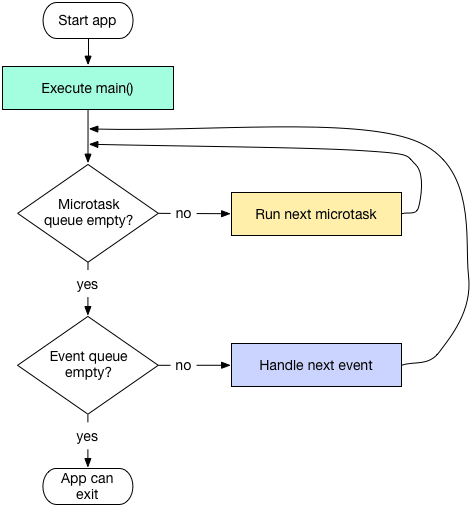All SEO Meta Tags: Copy Paste it
https://dev.sh20raj.com/sh20raj/all-seo-meta-tags-copy-paste-it-3pkp
In the digital landscape, where websites compete for attention, Search Engine Optimization (SEO) plays a crucial role in determining your online visibility. One of the fundamental aspects of SEO is the proper use of meta tags. These small snippets of code provide vital information to search engines and social media platforms, influencing how your site appears in search results and social media shares.
Understanding Meta Tags
Meta tags are HTML elements that provide metadata about a webpage. They don’t affect how the page looks but provide data to search engines and other web services. Here are some essential meta tags you should know about:
1. Title Tag
The title tag is perhaps the most critical meta tag for SEO. It defines the title of a webpage and appears as the clickable headline in search engine results. It should accurately describe the content of the page and include relevant keywords.
2. Meta Description Tag
The meta description tag provides a brief summary of the page’s content. While it doesn’t directly impact rankings, a well-crafted meta description can improve click-through rates from search engine results.
3. Meta Keywords Tag (Note: Less important now)
In the past, the meta keywords tag was used to list relevant keywords for a page. However, major search engines like Google now ignore this tag. Some smaller search engines still use it, but it’s not a significant ranking factor.
4. Viewport Tag
The viewport meta tag is crucial for mobile responsiveness. It ensures that your website scales properly on various devices, improving user experience and potentially impacting SEO.
5. Canonical Tag
The canonical tag is used to address duplicate content issues. If you have similar or identical content on multiple pages, the canonical tag specifies the preferred version to index in search engines.
6. Open Graph Tags (OG Tags)
Open Graph tags are essential for social media sharing. They control how your content appears when shared on platforms like Facebook, Twitter, LinkedIn, and more.
<meta property=“og:description” content=“Your page description here”>
<meta property=“og:image” content=“https://www.yourwebsite.com/your-image.jpg”>
<meta property=“og:url” content=“https://www.yourwebsite.com/your-page-url”>
<meta property=“og:type” content=“website”>
7. Twitter Card Tags
Similar to Open Graph tags, Twitter Card tags help control how your content appears when shared on Twitter.
<meta name=“twitter:site” content=“@yourtwitterhandle”>
<meta name=“twitter:title” content=“Your Page Title Here”>
<meta name=“twitter:description” content=“Your page description here”>
<meta name=“twitter:image” content=“https://www.yourwebsite.com/your-image.jpg”>
8. Robots Meta Tag
The robots meta tag gives instructions to search engine crawlers on how to index and display your page. It’s useful for controlling indexing and crawling behavior.
<meta name=“robots” content=“noindex, nofollow”> <!– Don’t index or follow links –>
<meta name=“robots” content=“noindex, follow”> <!– Index but don’t follow links –>
<meta name=“robots” content=“index, nofollow”> <!– Follow links but don’t index –>
Conclusion
Properly utilizing these meta tags can significantly impact your website’s visibility and click-through rates. Remember to craft unique and descriptive tags for each page of your site, keeping your target audience and relevant keywords in mind. Regularly monitoring and updating your meta tags as your content evolves will help maintain a strong SEO presence.
Meta Tags Summary (Copy and Paste)
<meta name=“description” content=“Your page description here”>
<meta name=“keywords” content=“keyword1, keyword2, keyword3”>
<meta name=“viewport” content=“width=device-width, initial-scale=1.0”>
<link rel=“canonical” href=“https://www.yourwebsite.com/your-page-url”>
<meta property=“og:title” content=“Your Page Title Here”>
<meta property=“og:description” content=“Your page description here”>
<meta property=“og:image” content=“https://www.yourwebsite.com/your-image.jpg”>
<meta property=“og:url” content=“https://www.yourwebsite.com/your-page-url”>
<meta property=“og:type” content=“website”>
<meta name=“twitter:card” content=“summary_large_image”>
<meta name=“twitter:site” content=“@yourtwitterhandle”>
<meta name=“twitter:title” content=“Your Page Title Here”>
<meta name=“twitter:description” content=“Your page description here”>
<meta name=“twitter:image” content=“https://www.yourwebsite.com/your-image.jpg”>
<meta name=“robots” content=“index, follow”>
<meta name=“robots” content=“noindex, nofollow”> <!– Don’t index or follow links –>
<meta name=“robots” content=“noindex, follow”> <!– Index but don’t follow links –>
<meta name=“robots” content=“index, nofollow”> <!– Follow links but don’t index –>
Feel free to copy and paste these meta tags directly into your HTML code to optimize your website for search engines and social media platforms.




